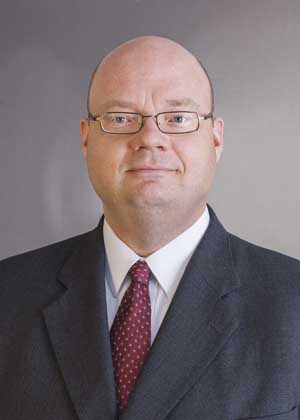December is a natural time to look back at the successes and challenges of the outgoing year, and to look ahead to those in the year to come. The Washington State Tree Fruit Association (WSTFA) has seen both as we seek to carry out our mission of enhancing the value of all segments of the tree fruit industry through education and training, statistical reporting and advocacy on state and local government issues.

Jon DeVaney
In the area of industry education, food safety training has continued to be a top priority for our members. WSTFA’s Jacqui Gordon Nunez has carried out a full schedule of classroom trainings, as well as producing a series of training videos in both English and Spanish on food safety topics for orchards and packing houses. These videos are available at no cost to WSTFA members.
Our leadership on food safety is also paying dividends for our members, as it prompted the Washington State Department of Agriculture to contract with WSTFA to provide additional grower training on the requirements of the federal Food Safety Modernization Act (FSMA). These classes will allow growers to meet the training requirements under FSMA at greater convenience and at significantly reduced cost.
Our members also rely on WSTFA to provide accurate and timely industry shipment, sales and inventory data.
We initiated a review of our existing reports to look for ways to improve their formatting and simplify the collection of this data. This process has already resulted in improvements, including more prominent placement of organic data to reflect the growth of this segment.
This effort will continue in the coming year, and we would welcome any feedback on how our statistical reporting can better serve your needs.
While the 2018 legislative session was relatively short, it did feature a renewed discussion of pesticide applications in agriculture. Specifically, WSTFA argued against a proposal from Sen. Rebecca Saldaña that would have required four days’ advance written notice of any pesticide application. We pointed out that growers cannot reasonably know this far in advance if weather conditions will allow a product to be safely applied, and many pests and diseases must be responded to within a few hours of detection.
In response to these concerns, the bill was modified to instead create a workgroup of legislators and agency staff to review measures that might be used to improve the safety of pesticide applications. This workgroup has been meeting over the summer and fall, and its recommendations will be put before the Legislature for consideration in 2019.
Although the exact nature of these recommendations is not yet known, we expect that the workgroup will recommend expansion of WSDA’s pesticide handler training program — which WSTFA has supported. We will be responding to the workgroup’s recommendations to ensure that the focus is on improving safety, rather than imposing burdensome and redundant paperwork on growers.
In addition to the forthcoming recommendations on pesticide safety, we are expecting the Legislature to give agricultural labor and the growth of H-2A employment in Washington additional attention in 2019. This process has already begun as the Washington State Department of Employment Security (ESD) has released a draft bill that it intends to submit for action by the Legislature.
ESD is concerned that the federal government is not providing adequate funding to cover the costs of functions delegated to the states under the H-2A program, including surveying for prevailing wages, verifying the shortage of available workers and performing status checks on foreign guest workers during the term of their contract.
ESD’s proposed solution is to create an expanded office related to H-2A functions and to fund these activities with a new annual fee of $1,000 per H-2A application, plus an additional $100 per worker for the first 1,000 workers and $50 for each worker thereafter. The agency projects that this would cost these employers a total of $3,180,000.
While the $300,000 per year currently provided to ESD through the U.S. Department of Labor (USDOL) may be inadequate to cover the cost of the work they are asked to perform, WSTFA strongly objects to the size and cost of this proposal. Enforcement and monitoring of this program is primarily a federal responsibility, and if the funding is not adequate then this should be addressed by Congress and USDOL. Washington growers should not be put at a competitive disadvantage relative to producers in other states by being asked to make up this shortfall in one state alone.
We have already had an opportunity to raise these concerns with ESD Commissioner Suzi LeVine and we will continue to argue for this issue being addressed at the federal level and not through a new fee on Washington growers.
WSTFA is proud to be the industry’s advocate, but it is important to remember that you, the growers, packers and marketers, are often our most effective messengers. That’s why we hope you will take the time to come to Olympia on Jan. 29 for our annual Tree Fruit Day. WSTFA will make the appointments with Legislators and provide you with background information and an experienced group leader. All you must do is honestly and politely share your concerns and views with your elected representatives.
For more information and to register your participation, please go to wstfa.org/tree-fruit-day. •
Jon DeVaney is president of the Washington State Tree Fruit Association.






Leave A Comment